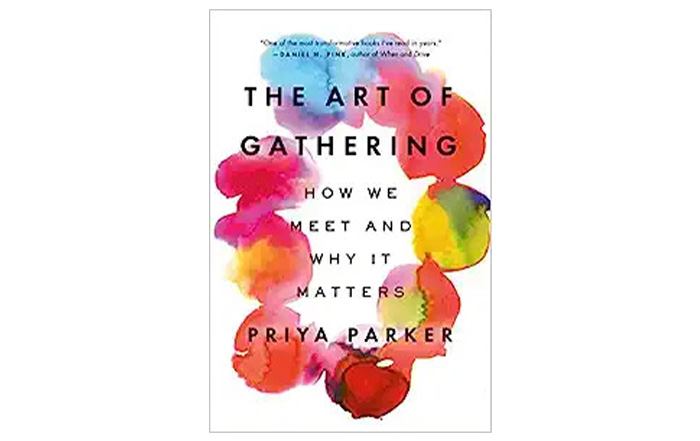Where to find this idea:
The Art of Gathering: How We Meet and Why It Matters by Priya Parker
Gathering is a powerful force that shapes our thoughts, emotions and actions (no surprise that dictators around the world have tried to limit freedom of assembly for centuries). It’s a deliberate act of uniting individuals for a distinct purpose. However, we often overlook the “purpose” part. We’re stuck in a repetitive cycle, adhering to worn-out formulas — weddings should be like this, birthdays should be like that. Even when certain gatherings irk us, such as pointless meetings, awkward networking events or dinners with friends that we’ve outgrown, we continue to participate. Typically, we devote more energy to logistics and formats, sidestepping the central question—why are these people here?
Understanding the purpose of a gathering is the first step toward gathering better.
When we organize a gathering, we think in categories. I’ll host a dinner. I’ll start a book club. I’ll schedule a meeting. But how do we start thinking deeper about the purpose?
- Be specific
Let’s say that you’re hosting a networking event and that the purpose of your event is to network. Fair enough. But what if you dig deeper and try to find a more specific purpose? Is it to help people find business partners or maybe gather feedback? Identifying a specific purpose creates a sense of belonging among attendees, making them feel like they’re in the right place. Plus, once you’ve pinpointed the true purpose, you might come up with an innovative format for your event.
- Avoid the “we’ve always done it this way” mindset.
Nonprofits throw galas, even when they aren’t the most effective fundraising events, because that’s what nonprofits do. Couples go on date nights once a week, even when they’re tired of it, because that’s what they do. While we’re busy organizing gatherings for the sake of it, we miss gatherings that might benefit us more.
- Reverse engineer an outcome
Think about the outcome you want from your gathering and work backwards from there. Structure your gatherings, whether professional or social, around these intended outcomes.
Consider this example: a baby shower. The conventional notion is that baby showers are for moms-to-be and their friends. The implication seems to be that women are responsible for all things baby-related, and the main outcome is to get stuff for a newborn. But what if we viewed this gathering as an opportunity for soon-to-be parents to engage in meaningful conversations with those who’ve already walked this path? What if the most beneficial outcome were to gain insights on how to handle this life transition, instead of receiving gifts? Would both parents be equally involved then? Would we still call it a baby shower? Would we still bring gifts for the baby?

